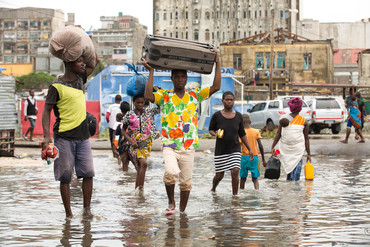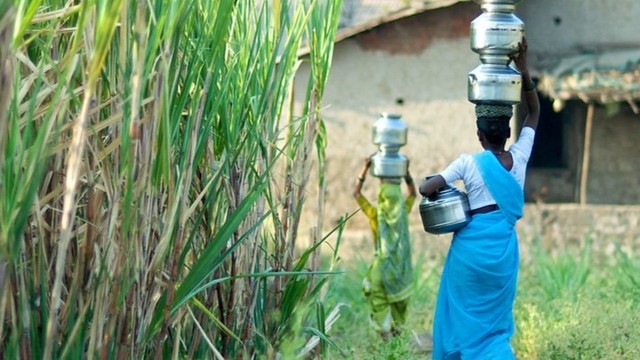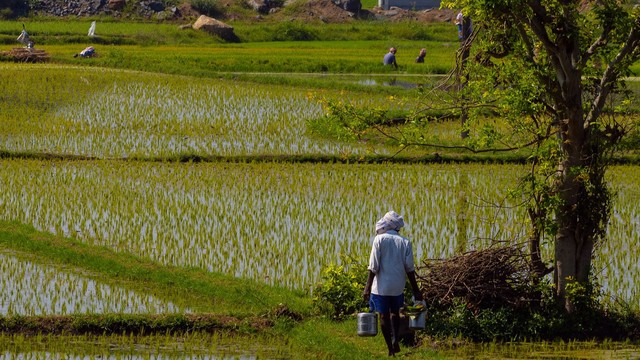Women paying the health cost of the climate crisis
In this webinar on Thursday March 7, we quantified the climate change loss and damage faced by women battling drought, migration and debt bondage.

A woman stands in a doorway in Beed, Marathwada, India (Photo: Ira Deulgaonkar/IIED)
As the impacts of climate change become increasingly apparent, communities worldwide are grappling with both economic and non-economic losses and damages. While economic impacts often receive attention through policy and programming, the non-economic losses remain largely invisible and unaddressed, particularly in climate finance. The need to quantify the full spectrum of climate impacts to develop targeted, effective responses is urgent.
This online event on Thursday 7 March included a panel discussion and launch a new paper that quantifies the loss and damage faced by women battling drought, debt bondage and migration.
Focusing on women in Beed, India, this event showed how women are disproportionately affected by climate change. We examined the connections between climate-induced droughts and debt bondage, and significant impacts on women's physical and mental health – leading to drastic health decisions.
We introduced attendees to the innovative C-CIQ methodology, which is a comprehensive approach allowing for in-depth assessment of climate change impacts, encompassing not only physical and economic aspects but also the social, cultural and psychological wellbeing of individuals and communities.
The C-CIQ methodology, with its emphasis on simplicity, replicability and clarity, aims to provide a framework for quantifying non-economic loss and damage through composite indices, making it a valuable tool for practitioners and policymakers in diverse contexts.
This event was essential for all stakeholders involved in climate change loss and damage, adaptation, migration and development, offering a platform to broaden the discourse on climate change impacts and foster collaborative solutions.
About the speakers
Findings of the paper and overview of C-CIQ methodology
- Ritu Bharadwaj, principal researcher, IIED
Panel discussion
- Arundhati Patil, secretary of Manaswini Mahila Prakalp and professor of social work at Manavlok social work college, Ambajogai, Beed, Maharashtra, India
- Madeleine Diouf Sarr, head of the climate change division in Senegal's Ministry of Environment and Sustainable Development
- Dr. Madeleine C. Thomson, head of climate impacts and adaptation, climate and health, Wellcome Trust
- Jasmine O’Connor OBE, chief executive officer, Anti Slavery International
- Stefan Raubenheimer, human rights lawyer and former executive director of the Foundation for International Law for the Environment (FILE)
- Marcia Toledo, director adaptation and resilience, Climate Champions
- Ian Fry, associate professor, Fenner School of Environment and Society, The Australian National University, and former UN Special Rapporteur on modern slavery and climate change
Event coverage
You can watch a recording of the event below or on IIED's YouTube channel, where individual links to the start of each speaker's contribution are also provided. The main presentation is also available on IIED's Slideshare channel.
IIED events newsletter
Sign up to our mailing list for updates and invitations to events throughout the year, including webinars, critical themes and debriefs.
Contact
Mette Groen (mette.groen@iied.org) is a senior project manager in IIED's Climate Change research group




